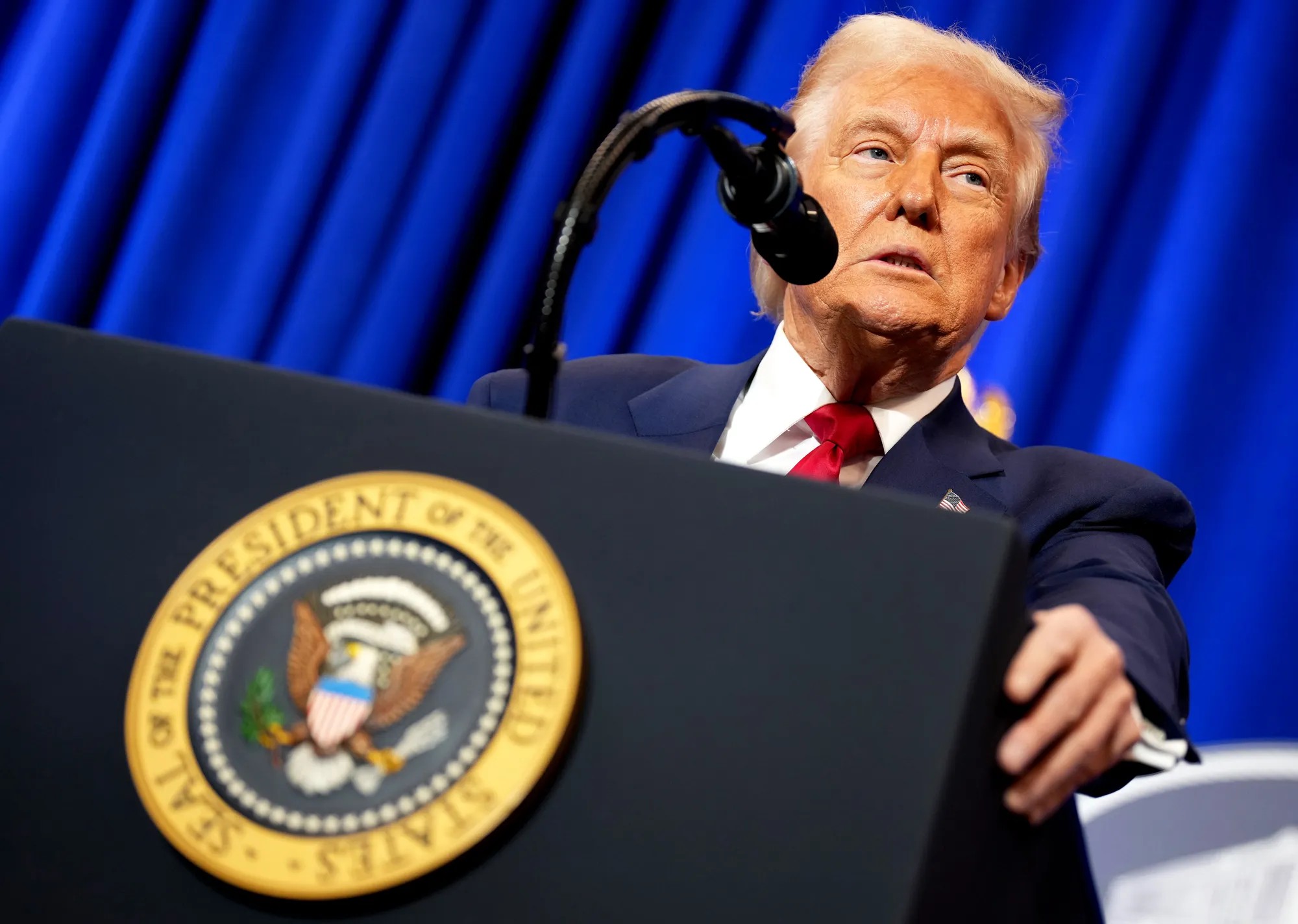JAKARTA – Former U.S. President Donald Trump has escalated trade tensions with the European Union by threatening to impose a 200% tariff on imported European alcohol, including champagne, wine, and spirits. This latest warning, issued via Truth Social on Thursday (March 13), follows the EU’s decision to raise tariffs on American whiskey and other products, a retaliatory move against Trump’s previous economic policies targeting European steel and aluminum.
Trump’s rhetoric was unrelenting as he accused the European Union of engaging in hostile trade practices that have unfairly disadvantaged American businesses. He described the EU as an economic aggressor that has consistently taken advantage of the U.S. in trade negotiations. “The European Union continues to implement predatory tariffs on American whiskey and other goods. If they do not remove these unfair measures immediately, the United States will enforce a 200% tariff on all European wine, champagne, and alcoholic beverages,” Trump announced, as quoted by the Daily Mail on Friday (March 13, 2025).
This trade dispute is set to have far-reaching economic repercussions, particularly for the European alcoholic beverage industry, which is highly dependent on the U.S. market. In 2024, European alcohol exports to the U.S. reached €2.9 billion, while American whiskey exports to Europe totaled only $699 million. Should Trump’s tariff threat materialize, European producers could see a drastic decline in their U.S. sales, leading to financial losses and market instability.
The EU’s newly introduced tariffs, scheduled to take effect on April 1, will impact American whiskey exports, particularly affecting distilleries in politically significant states such as Kentucky, Florida, and Texas. These states, which played a crucial role in Trump’s previous electoral victories, now find themselves at the heart of an economic battle that could determine the future of U.S.-EU trade relations.
Industry leaders in the United States have strongly criticized the EU’s decision, warning that increased trade barriers will stifle economic growth and limit opportunities for American producers seeking to expand into European markets. Chris Swonger, CEO of the Distilled Spirits Council, described the tariffs as a major setback for the American spirits industry, stating that such policies could reverse years of progress in rebuilding trade relationships with European consumers.
Trump’s decision to single out champagne in his tariff threat further intensifies the dispute, as it directly challenges one of France’s most valuable exports. Champagne is a strictly regulated product that can only be produced in the Champagne region, making it a cornerstone of the French luxury goods industry. By imposing a 200% tariff, Trump is effectively targeting a global symbol of European craftsmanship, sending a clear message that the U.S. is prepared to take drastic action to protect its domestic industries.
European Commission President Ursula von der Leyen swiftly responded to the growing trade tensions, warning that escalating tariffs would harm both businesses and consumers. She emphasized that imposing protectionist measures on widely consumed goods could fuel inflation and create economic uncertainty on both sides of the Atlantic. Von der Leyen also stressed that trade disputes of this magnitude could strain diplomatic relations, making it more difficult for the U.S. and EU to collaborate on broader economic and geopolitical issues.
As tensions continue to rise, Canada has also stepped into the fray, imposing $21 billion in tariffs on American goods, including technology products and sports equipment. This growing wave of retaliatory measures highlights a global shift toward economic nationalism, with key U.S. trading partners pushing back against Washington’s increasingly aggressive trade policies.
With the world closely watching, the stakes of this trade dispute continue to mount. If neither side backs down, the escalating tariffs could trigger a broader economic conflict, further destabilizing transatlantic relations and reshaping the global trade landscape for years to come.









